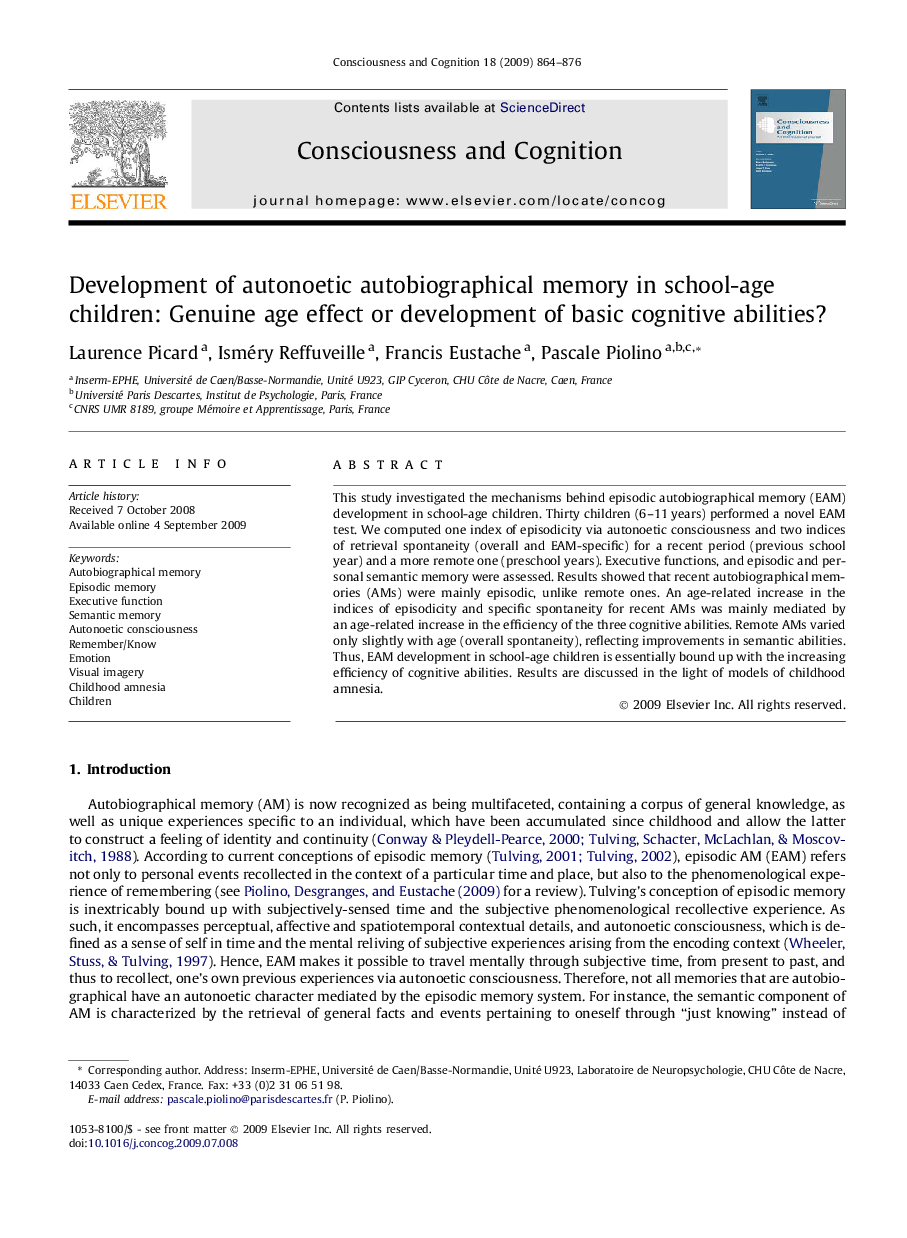| Article ID | Journal | Published Year | Pages | File Type |
|---|---|---|---|---|
| 10458725 | Consciousness and Cognition | 2009 | 13 Pages |
Abstract
This study investigated the mechanisms behind episodic autobiographical memory (EAM) development in school-age children. Thirty children (6-11Â years) performed a novel EAM test. We computed one index of episodicity via autonoetic consciousness and two indices of retrieval spontaneity (overall and EAM-specific) for a recent period (previous school year) and a more remote one (preschool years). Executive functions, and episodic and personal semantic memory were assessed. Results showed that recent autobiographical memories (AMs) were mainly episodic, unlike remote ones. An age-related increase in the indices of episodicity and specific spontaneity for recent AMs was mainly mediated by an age-related increase in the efficiency of the three cognitive abilities. Remote AMs varied only slightly with age (overall spontaneity), reflecting improvements in semantic abilities. Thus, EAM development in school-age children is essentially bound up with the increasing efficiency of cognitive abilities. Results are discussed in the light of models of childhood amnesia.
Keywords
Related Topics
Life Sciences
Neuroscience
Cognitive Neuroscience
Authors
Laurence Picard, Isméry Reffuveille, Francis Eustache, Pascale Piolino,
